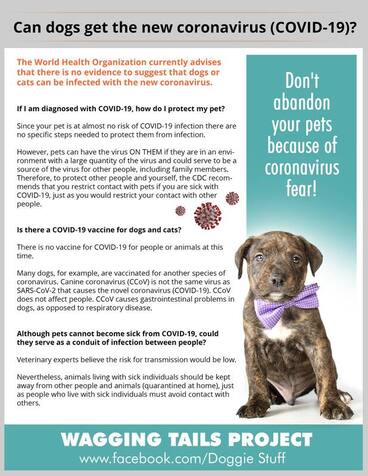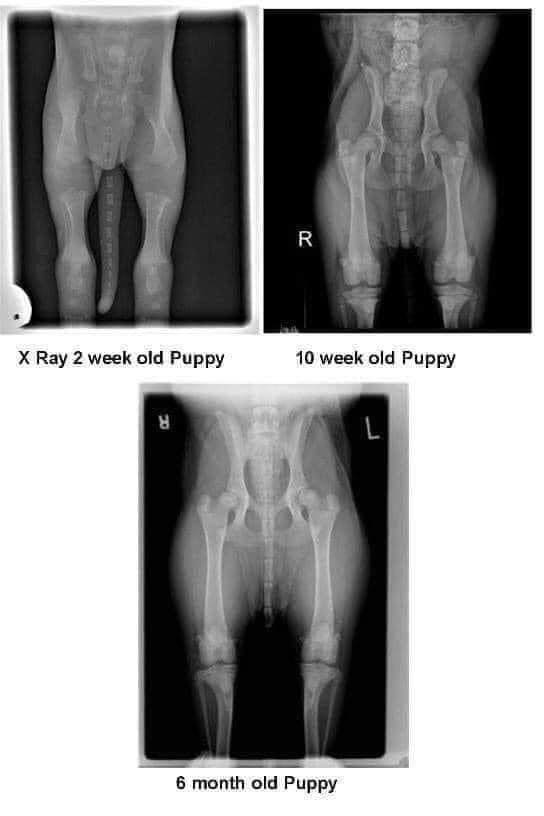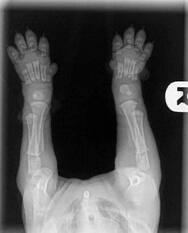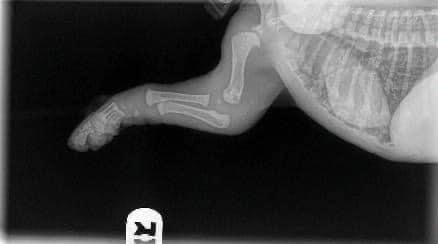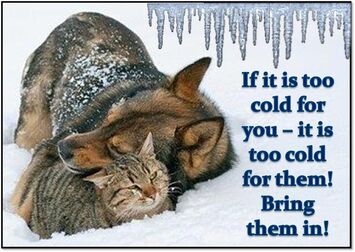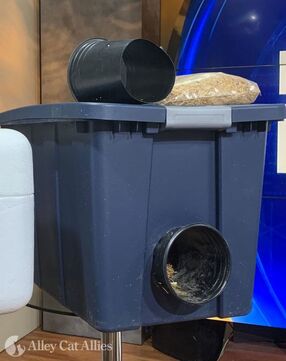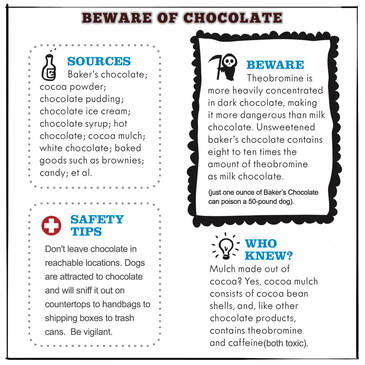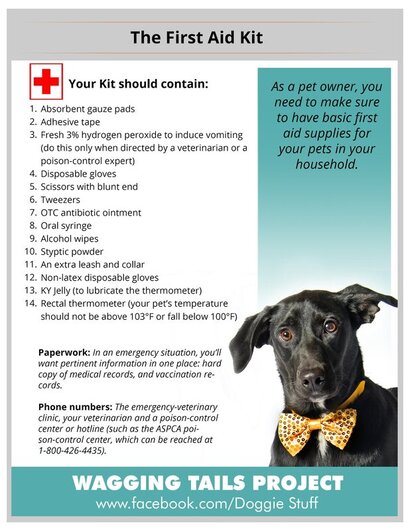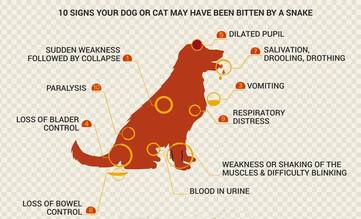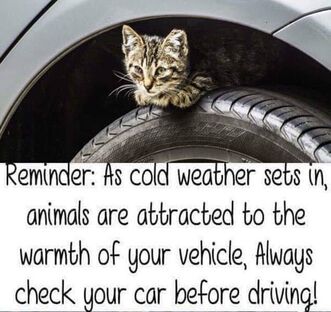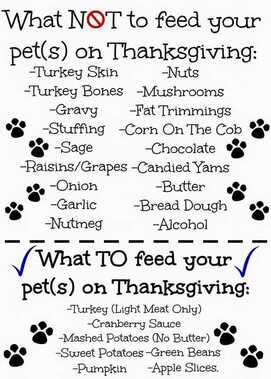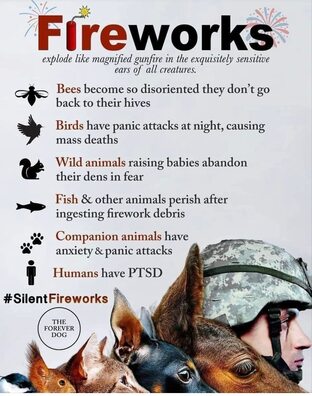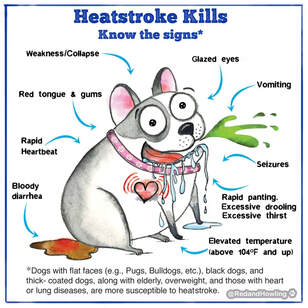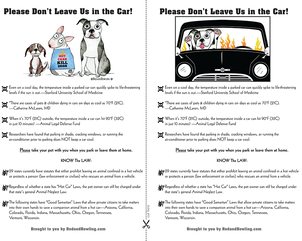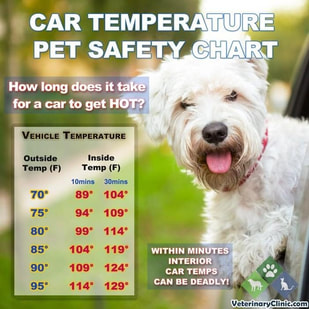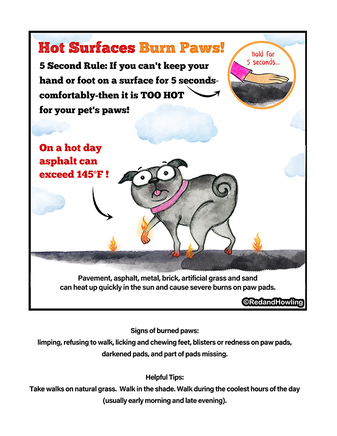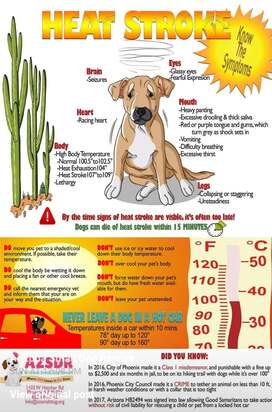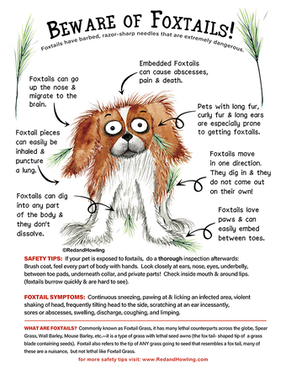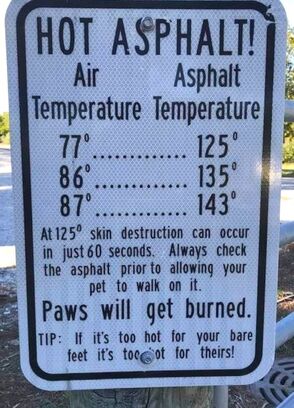Health Information for Your Companion Animal
|
Just like people, pets can be allergic to many, many things and allergies can make our fur kids miserable.
Common allergens: Pollen, dust mites, mold, ingredients in foods, like wheat and corn. To confuse matters, environmental allergies (like pollen) can be seasonal. Keep in mind that allergens can also be in your cleaning supplies, laundry detergent, the stuffing in toys, and so much more. And like us, pets can have allergies to multiple things—not just one thing! An allergic reaction begins on the inside and often manifests on the body's largest organ—the skin— so while topical treatments like soothing shampoos, salves, and sprays offer temporary relief, long term healing comes from a balanced, healthy immune system. Often, in desperation, seeking relief, pet owners will give pets steroids (prednisone, cortisone, allergy shots) which improves symptoms fast, but doesn't address the root cause. Steroids suppress the immune system and can also damage your pet's kidneys and liver . When the immune system is suppressed it gives yeast and bacteria free rein to grow on your pet's skin. Yeast overgrowth is accompanied by that infamous corn chip smell! Allergy Busting Tips: • Fortify the immune system! Avoid excessive/unnecessary vaccinations & drugs, like steroids. • Feed a healthy, wholesome, nutritionally diverse diet. • Consider adding supportive supplements that may be lacking in the diet. • Wash collars, harness, and pet bedding frequently and rinse or wipe down pets after walks. This washes away environmental allergens that might be irritating your pet. • Give natural allergy supplements to relieve symptoms (Omega 3 fatty acids, Manuka honey, turmeric, quercetin combined with bromelain, etc.). Taking the time to improve your pet's immune system, diet, and overall health will allow your pet's immune systems to rest and heal from allergies. Coronavirus
Dogs, cats can't pass on coronavirus, but can test positive. HONG KONG (AP) - Pet cats and dogs cannot pass the new coronavirus on to humans, but they can test positive for low levels of the pathogen if they catch it from their owners. That's the conclusion of Hong Kong's Agriculture, Fisheries and Conservation Department after a dog in quarantine tested weakly positive for the virus Feb. 27, Feb. 28 and March 2, using the canine's nasal and oral cavity samples. A unidentified spokesman for the department was quoted in a news release as saying. "There is currently no evidence that pet animals can be a source of infection of COVID-19 or that they become sick." Scientists suspect the virus known as SARS-CoV-2 that causes the disease originated in bats before passing it on to another species, possibly a small wild mammal, that passed it on to humans. However, experts from the School of Public Health of The University of Hong Kong, the College of Veterinary Medicine and Life Sciences of the City University of Hong Kong and the World Organisation for Animal Health (OIE) have unanimously agreed that the dog has a low-level of infection and it is "likely to be a case of human-to-animal transmission." The dog, and another also in quarantine which has tested negative for the virus, will be tested again before being released. The department suggested any pets, including dogs and cats, from households where someone has tested positive for the virus should be put into quarantine. In general, pet owners should maintain good hygiene, including washing hands before and after handling animals, their food and supplies and no kissing them. People who are sick should avoid contact with pets and a veterinarian's advice should be sought if changes in a pet's health conditions are detected. "Apart from maintaining good hygiene practices, pet owners need not be overly concerned and under no circumstances should they abandon their pets," the spokesman said. _____ The Associated Press receives support for health and science coverage from the Howard Hughes Medical Institute's Department of Science Education. The AP is solely responsible for all content. EARLY PUPPY DEVELOPMENT
This is something everyone should see.
When you get your 8/10 week old puppies, please keep this image in mind. A lot of their bones do not even touch yet. They plod around so cutely with big floppy paws and wobbly movement because their joints are entirely made up of muscle, tendons, ligaments with skin covering. Nothing is fitting tightly together or has a true socket yet. When you run them excessively or don't restrict their exercise to stop them from overdoing it during this period you don't give them a chance to grow properly. Every big jump or excited bouncing run causes impacts between the bones. In reasonable amounts this is not problematic and is the normal wear and tear that every animal will engage in. But when you're letting puppy jump up and down off the lounge or bed, take them for long walks/hikes, you are damaging that forming joint. When you let the puppy scramble on tile with no traction you are damaging the joint. You only get the chance to grow them once. A well built body is something that comes from excellent breeding and a great upbringing-BOTH, not just one. Once grown you will have the rest of their life to spend playing and engaging in higher impact exercise. So keep it calm while they're still little baby puppies and give the gift that can only be given once. Your dogs growth plates are done maturing at 2 years of age. Juvenile spaying and neutering interrupts proper brain & bone development, WINTER CARE
⚠️ FREEZE ALERT! ⚠️
Like people, cats and dogs are susceptible to frostbite and hypothermia and should be kept inside. Remember, the new Santa Fe ordinance prohibits dogs from being kept outside in temperatures below 32 degrees.
Follow these tips when the weather outside is freezing: • Keep your dog & cats indoors where they can be safe and warm from the elements. * Never leave your dog alone in a car during cold weather. In the winter, a car is just like a refrigerator, trapping the cold air inside and can cause him to freeze to death. • If you must keep your dog outside for an extended period, provide a sturdy dog house: Use straw bedding; have an off-center door with a flap to keep out the wind; face the dog house south and raise it off the ground; provide plenty of food and water and make sure the water does not freeze. Never use hay. Bundle up this winter
Leave your dog’s fur longer during the winter to keep them warm. If you have a puppy, kitten, or a shorthair-breed pet, consider purchasing a coat or sweater to cover their back and underside — fleece is a great option! Protect those paws! The cold snow and ice can be a pain in the paw. Make sure to wash and completely dry your pet’s paws after time outside (especially if they came in contact with any salt or chemical de-icer). Look out for snow and encrusted ice that can cause cracked, bleeding paws. If you notice any bleeding, call your veterinarian. Petroleum jelly is a safe way to protect those paws—you can also look into dog boots. Winter diet In the cold winter, your pet will burn more calories to keep warm. If your pet exercises outdoors a lot, think about increasing their food intake by a little bit. You should be able to feel, but not see, your pet’s ribs. Follow these tips when the weather outside is freezing: • Keep your dog & cats indoors where they can be safe and warm from the elements. Keep Feral Cats Warm in Cold Temperatures
Provide Shelter.
Insulate cat shelters with straw not hay. Clear snow from the entrances of cats’ shelters. Don’t use salt or chemical melting products to clear snow. Keep antifreeze away from cats. Provide Food and Water. Use a heated bowl for cats’ water and wet food. Build a feeding station. |
Dental Health
According to veterinarians, neglecting oral hygiene in dogs and cats can lead to significant issues like tartar build-up, gum disease, bad breath, heart disease, lung disease,and kidney disease. Take your pet for regular vet visits and follow your vet's recommended dental routines to keep your pets happy and healthy. DOG FOOD ADVISOR
REVIEWS, RATINGS AND RECALLS Protect Your Dog The Dog Food Advisor offers a FREE Dog Food Recall Alert Service by email. www.dogfoodadvisor.com CHOCOLATE
The First Aid Kit
Posted by Bridges to Home Click to Enlarge 🔥🔥🔥SMOKE IN THE AIR🔥🔥🔥
Many people have reached out to us regarding the smoke in the air. So we wanted to provide some safety tips for your companion animals when the air quality gets this bad.
The biggest danger to your companion pets when breathing wildfire smoke comes from fire particles, which can reach deep into the lungs and cause a variety of health issues from burning eyes to chronic congestion. To keep them safe from the smoke in the air, the best thing to do is keep them inside! * Keep pets indoors with windows closed * Use air conditioning, if possible, to filter the air. Use fans to circulate the air * Keep potty breaks short * Avoid long walks and other prolonged outdoor exercises * Keep pets well hydrated. Besides offering plenty of cool clear water, humidifiers can help keep moisture in the air and helps cells in the trachea, nose and lungs stay healthy * Watch for signs of respiratory stress and eye inflammation (see below). If your pet shows symptoms, see a veterinarian immediately Here is some suggested indoor exercise to keep your dog happy during this time. * Hide-and-seek * Puzzle toys like the classic KONG * Fetch and tug * Brushing up on basic training 19 SIGNS YOU DOG OR CAT MAY HAVE BEEN BITTEN BY A SNAKE!
Five steps for pet snake bite: Stay calm!
Identify the snake. This step is one of the most important because each venom does different types of damage. It is also needed if your pet needs anti-venom treatment. Inspect your pet. Fifty percent of all venomous snake bites are dry bites. A dry bite means no venom was injected. If you pet were envenomed, you would see significant tissue swelling almost immediately. Medicate. Skip this step if your pet is having difficulty breathing or has collapsed and go to your veterinarian or the nearest pet emergency clinic. Give your pet 1mg/pound of body weight of Benadryl or the generic equivalent. Example: A 25-pound dog would get 25mg of Benadryl, which is one adult tablet. If you have some pain medication from your veterinarian, give as directed to your dog. Do not give Aspirin, as this can worsen the effects of some venom. Veterinarians do not recommend giving any pain medication to cats without your veterinarian’s approval because cats are unable to process many of these medications. Take your pet to the vet! The most common symptom of snake bite in pets is localized tissue swelling. Your veterinarian will most likely treat with the same medication as listed above, but use an injectable form which will act much faster. If you medicated your pet prior to arriving, make sure to tell your vet. If your pet is exhibiting live threatening symptoms, anti-venom is the next course of action. Not all veterinarians have anti-venom because it is expensive and has a short expiration date. If you have venomous snakes in your area, talk with your veterinarian about the closest place to receive this treatment. A snake vaccine is available for dogs. This vaccine works by neutralizing the snake venom and decreasing your dog’s symptoms. Your dog will initially need a series of two vaccines spaced one month apart before it is considered protected. The vaccine provides good protection for six months. Veterinarians recommend giving the vaccine in the spring, and your dog will be protected through snake season in most areas of the United States. A NOTE ABOUT THE THANKSGIVING AND CHRISTMAS HOLIDAY
Turkey can be problematic. Too much is said to cause pancreatitis. Too much fat in the skin and meat. Published by the Arizona Small Dog Rescue,Phoenix, AZ azsmalldog.org/
EASTER LILIES ARE POISONOUS TO CATS
ASPCA POISON CONTROL INFORMATION
ASPCA Animal Poison Control Center Phone Number: (888) 426-4435
The ASPCA Animal Poison Control Center (APCC) is your best resource for any animal poison-related emergency, 24 hours a day, 365 days a year. If you think your pet may have ingested a potentially poisonous substance, call (888) 426-4435. A consultation fee may apply. Are you a veterinarian or animal healthcare professional? See the APCC’s Veterinary Resources page for more information. Our Poison Control experts have also provided valuable information below to help parents recognize and protect their pets from poisonous substances including plants, human foods, human medications and more. WEBSITE |
SUMMER INFORMATION FOR YOUR COMPANION ANIMAL
Lyme disease, also known as Lyme borreliosis, is a bacterial illness that can be transmitted to humans, dogs, and other animals by certain species of ticks. It is caused by the spiral-shaped bacterium Borrelia burgdorferi, which is carried inside a tick and gets into a dog or person’s bloodstream through a tick bite. Once in the bloodstream, the bacteria can travel to different parts of the body and cause problems in specific organs or locations, such as joints, as well as overall illness. Given the seriousness of Lyme disease, it’s important to be aware of tick prevention and treatment for dogs.
|
HEATSTROKE KILLS
Hot sidewalks, asphalt and other surfaces can hurt a dog’s paws.
Dogs showing these symptoms may have burned paws: Limping or avoiding walking Licking or chewing feet Paw pads are darker in color than usual Pads are visibly damaged Blisters or redness First aid for burned paws If you suspect your dog has burned paw pads: Bring your dog inside right away. Carry your pet if necessary. Flush the foot with cold water or use a cold compress. Try not to let your dog lick the injured pad. Take your dog to the vet as soon as you possible because burns can become infected. Your dog might need antibiotics or pain medication depending on the severity of the burn. The vet can also rule out other possible causes of the symptoms. Paw licking can also be a sign of other problems, such as allergies. How do I protect my pet’s paws from the heat? Dog booties and socks help shield against the hot pavement. Try to avoid walking on streets or sidewalks in the middle of the day, when it’s hottest. If your pooch seems uncomfortable on a manmade surface, head for grass, which stays cooler than pavement. Do take your dog for walks on pavement when the weather is cooler. This will help your dog’s paws form calluses, which will make the skin thicker and less prone to burns and other injuries. SCARS wishes to thank Amy Luwis, Cartoonist • Animal Cruelty Avenger -for her posters... RedandHowling.com Co-Founder • Adopt-a-Pet.com Please Adopt, Don't Shop |
Published by the Arizona Small Dog Rescue,
Phoenix, AZ azsmalldog.org/ Foxtail Grass: Awns of Destruction
for Western Dogs Foxtail awns present the most insidious threat to the health of dogs in the Western United States. Here is how to identify foxtails, get them off your property, and protect your dog. Foxtails Are Designed to Penetrate Anything!
The seeds of this nasty grass seem to have a special affinity for invading dogs’ bodies. The three most common hazards are these: They get sniffed into dog noses, work their way into dog ears, and lodge between dog toes. Each of these sites is a mere port of entry for these sturdy seeds; once inside, they start a relentless crawl forward, traveling deeper into a dog’s tissue with every passing hour. They are sometimes found in exploratory surgeries years afterward; the durable seed and awn fibers resist breaking down in the body as if they were made of plastic. Those common jumping-off points for the foxtail’s inner-dog journey are not the only ones, however. Foxtails can penetrate any part of your dog; all they need is a place to attach. In dogs with very short hair (like American Pit Bull Terriers, Vizslas, and Weimaraners), they need a fold in the skin of some kind (armpit, vagina, prepuce). To these bristly seeds, longer, thicker, or curly coats behave a little like the “loop” side of a Velcro-type hook-and-loop fastener; a foxtail can stick to the coat, and wherever it sticks, it will start to burrow, enabling the seeds to penetrate anywhere on the furry dogs’ bodies. If your dog has been anywhere near foxtails, and has any sort of abnormal sign of discomfort or irritation – shaking her head, an uncharacteristic squint, repetitively licking her paw or other part of her body, sneezing, coughing, gagging – call your vet and make an appointment as soon as possible. |
